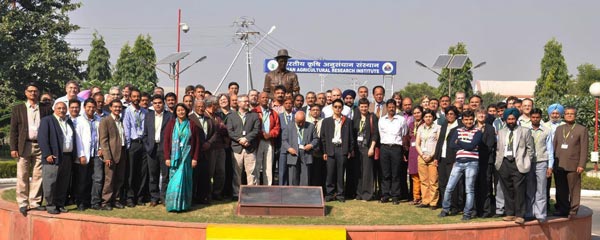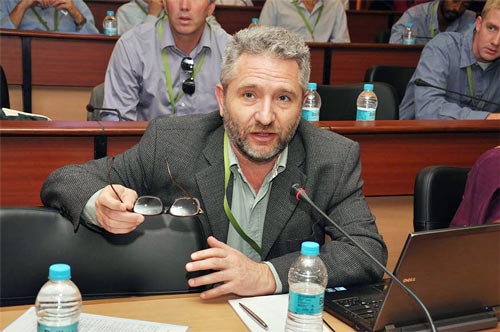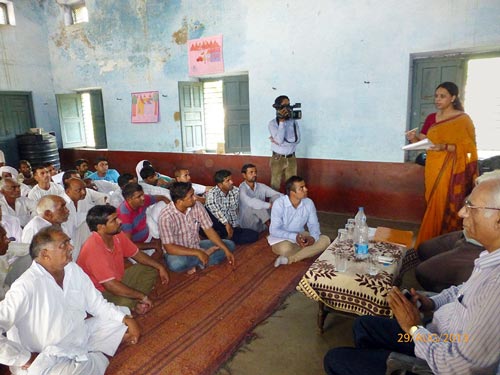By Emma Quilligan/CIMMYT
More than 70 experts on maize, millet, rice, sorghum and wheat identified cross-cutting priorities and goals to address climate change, one of the most pressing issues for food security, at a recent meeting in India.
Entitled “Maintaining cereal productivity under climate change through international collaboration,” the meeting took place during 18-20 November at the National Agriculture Science Centre (NASC) Pusa Campus in New Delhi. CIMMYT organized the meeting with co-sponsorship from the U.S. Agency for International Development (USAID) and the Bill & Melinda Gates Foundation (BMGF). “We learn a lot by comparing notes among crops,” said Matthew Reynolds, CIMMYT wheat physiologist and organizer of the meeting’s scientific program. “It can help provide new inspirations as well as avoid reinventing the wheel.”

Following welcome speeches from Etienne Duveiller, CIMMYT Director for South Asia, as well as Saharah Moon Chapotin and Srivalli Krishnan from USAID, Tony Cavalieri from the BMGF and Swapan Kumar Datta from the Indian Centre for Agricultural Research (ICAR), a diverse panel summarized the challenges climate change poses to cereal production. Mark Rosegrant, director of the Environment and Production Technology Division at the International Food Policy Research Institute (IFPRI), highlighted the numerous effects climate change is predicted to have on cereal production and prices. Maize prices are predicted to increase by more than 50 percent and the prices of other crops by 25 to 50 percent by 2050. “This is without accounting for effects of climate change,” he said. “Climate change is a threat multiplier, and significant new expenditures are required to reduce its adverse impacts.”

Other presentations included information on temperature thresholds in different crops, efficient phenotyping and breeding approaches and how crop modeling might facilitate the design of climate-ready crops. Leading scientists focusing on each of the five crops gave presentations on recent genetic gains and research achievements in their field, which enabled participants to see the similarities between the crops and learn about discoveries applicable to their own research. Donor representatives emphasized the importance of collaboration and cross-cutting research to improve yield gains in the face of climate change. “With all the expertise we have in this room, and with all the partners you have across the globe, I really think we can make a difference in this area,” Chapotin said. Participants split into multidisciplinary working groups to identify priorities and potential areas for cross-crop collaboration in the following areas: data management and sharing; genotyping platforms; heat and drought adaptive traits; phenotyping in a breeding context; and the minimum dataset required to define target environments.
K.C. Bansal, director of the National Bureau for Plant Genetic Resources in India, questioned whether people are making the most of plant genetic resources in the face of climate change during his session “Biodiversity Act and Germplasm Access in India.” Many participants highlighted their own difficulties in getting germplasm out of India and Bansal outlined the procedure to simplify the process. Participants agreed that more accessible, synchronous and searchable data sharing will be essential for future collaborations. Data sharing will soon become mandatory for all USAID projects, and participants emphasized the need for a common system. Collecting data requires funding. Scott Chapman, crop adaptation scientist for the Commonwealth Scientific and Industrial Research Organization, estimated Australian programs spend several million dollars annually to collect the data from their national trials. Most participants expressed interest in establishing a working group to continue these fruitful, cross-crop interactions. A web portal to facilitate such dialogue will be established as soon as possible.
 Capacity development
Capacity development 

